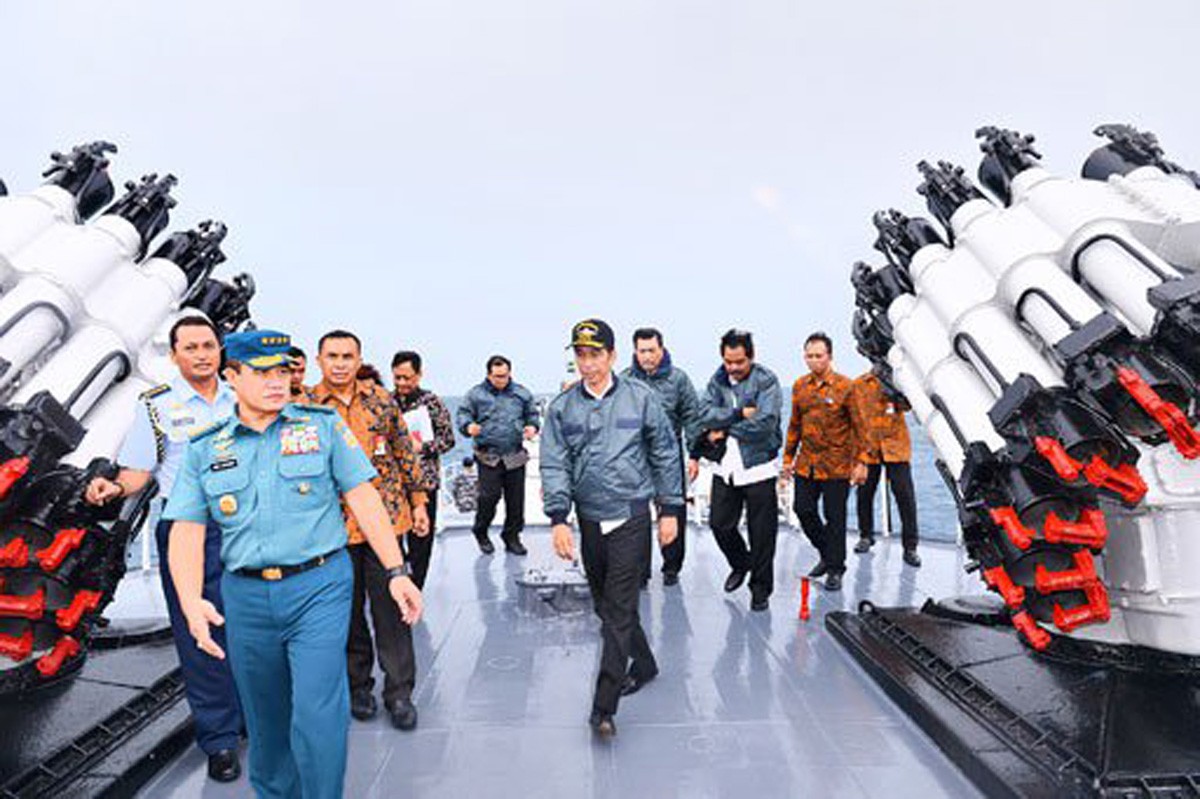Popular Reads
Top Results
Can't find what you're looking for?
View all search resultsPopular Reads
Top Results
Can't find what you're looking for?
View all search resultsEDITORIAL: What's in a name?
China’s immediate criticism of Indonesia’s move shows its sensitivity regarding the South China Sea, although Indonesia mantains it is not a claimant.
Change text size
Gift Premium Articles
to Anyone
A
territory's name matters in international relations, particularly between two competing nations, although in many cases one name is chosen over another merely for practical reasons. Indonesia’s decision to rename a contentious maritime territory the North Natuna Sea on Friday is part of the country’s updating of its maps. A deputy to the coordinating maritime minister, Arief Havas Oegroseno, said the North Natuna Sea, formerly known as part of the South China Sea, which China claims almost in its entirety, refers to oil and gas exploration activities in the northern part of the Natuna Sea’s continental shelf boundary, named the North Natuna and South Natuna blocks.
The new name will simply provide certainty and a connection between the continental shelf border and the waters to its north. But China’s immediate criticism of Indonesia’s move shows its sensitivity regarding the South China Sea, although Indonesia mantains it is not a claimant. Chinese Foreign Ministry spokesman Geng Shuang told the media that Beijing hoped “the relevant country can work with China for shared goals and jointly uphold the current hard-won sound situation in the South China Sea.”
Havas said that as a sovereign state Indonesia had the right to name every area in the country’s territory and would officially register the North Natuna Sea with the United Nations and the International Hydrographic Organization. Whether the naming of the waters of Indonesia’s exclusive economic zone waters north of the natural resources-rich Natuna will hurt ties between Jakarta and Beijing, which have deepened since President Joko “Jokowi” Widodo took office in October 2014, remains to be seen. There is no reason to worry about such an adverse impact, however.
First and foremost, Indonesia has insisted that it has no territorial dispute in the Natuna waters with China. History also shows that China takes the same stance, as stated by then president Jiang Zemin during a meeting with his Indonesian counterpart Soeharto in 1992.
Second, with China investing big in Indonesia, particularly in infrastructure, and the two reiterating their commitment to enhancing strategic partnerships, it is loud and clear that they mean business and will not let other issues distract from their common bid for growth.
China and Indonesia, as well as other ASEAN member states and their dialogue partners, are also moving a step closer to realizing an ambitious broader regional economic integration pact called the Regional Comprehensive Economic Partnership (RCEP), further signifying their shared objective of cooperation, rather than confrontation.
Misunderstandings may stand between Jakarta and Beijing in the wake of the naming of the North Natuna Sea, but our bilateral ties are too big to fail. Although Jakarta will not negotiate with other nations that make unconventional claims “including those who insist on a map of nine dashes,” its explanation that the policy is simply aimed at protecting its natural resources will help ease the tension, if not confusion. For long Indonesia has suffered billions of dollars in annual losses particularly from illegal fishing, including in the Natuna waters.
As the English playwright Shakespeare put it, “What’s in a name?”









